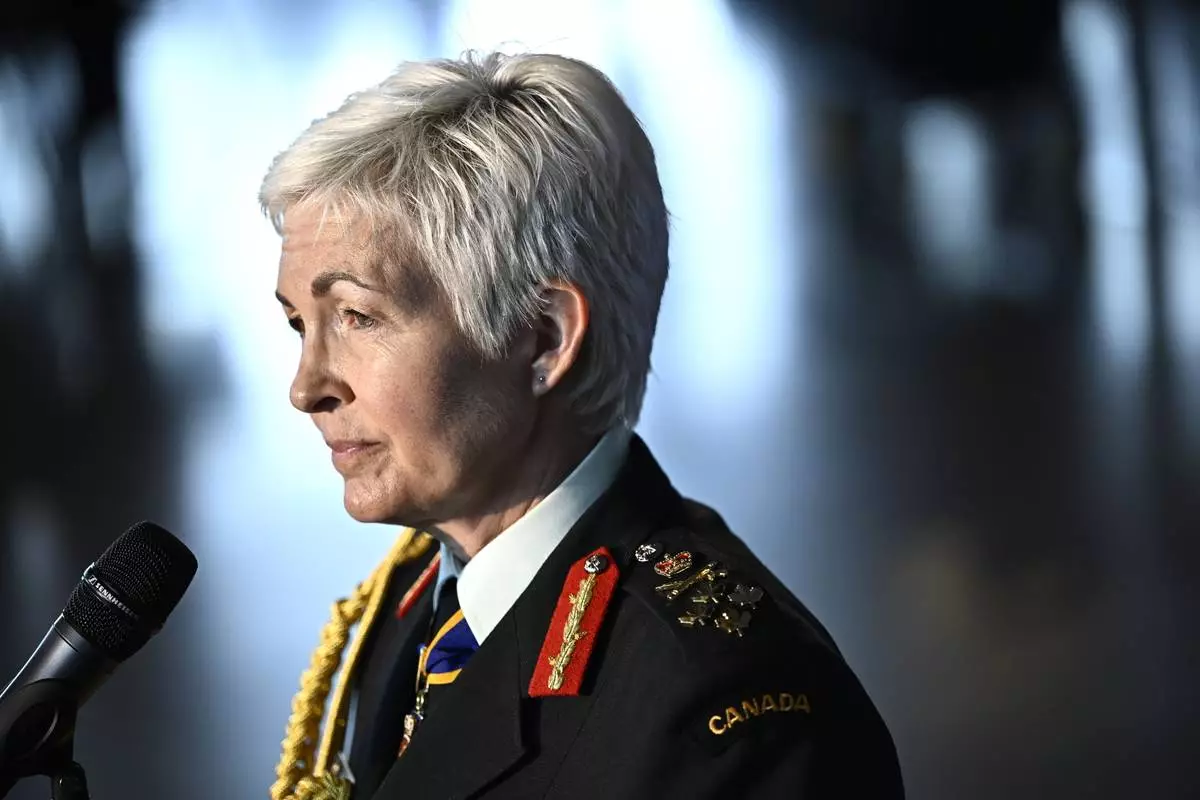A U.S. senator from Wisconsin who has publicly criticized Russian President Vladimir Putin said Monday that Russia has denied him a visa to visit as part of a congressional delegation.
Ron Johnson said he had planned to speak with government officials, American businesses and others during his trip. The Republican is chairman of the Senate Foreign Relations Committee's Subcommittee on Europe and Regional Security Cooperation.
A news release from Johnson's office didn't say when he had planned to visit Russia or name the other members of the congressional delegation. Johnson spokesman Aaren Johnson said the trip had been planned for next week and the delegation had planned to visit several countries. He said he was unable to say why Johnson was denied a visa.
An email to the Russian Embassy in Washington, D.C., inquiring about the denial bounced back as undeliverable Monday. No one immediately responded to another email sent to a different address for the embassy. Calls to the building couldn't connect.
Ron Johnson has spoken in the past of Russia taking "a dark turn" under Putin, and he criticized the Russian president sharply in announcing the visa denial.
He and fellow Republican Sen. John Barrasso of Wyoming were granted visas in 2017 to visit Russia in January 2018 but canceled the trip after another member of their delegation, Democratic Sen. Jeanne Shaheen of New Hampshire, was denied.
Shaheen has been an outspoken supporter of measures meant to counter Russia's interference in U.S. elections. The Russian Embassy said at the time that Shaheen's request was rejected because she is on a black list created in response to U.S. sanctions.
HALIFAX, Nova Scotia (AP) — The first woman to command Canada's military called out a U.S. senator on Saturday for questioning the role of women in combat.
Gen. Jennie Carignan responded to comments made by Idaho Republican Sen. Jim Risch, the ranking member of the U.S. Senate Foreign Relations Committee, who was asked on Friday whether President-elect Donald Trump’s nominee for defense secretary, Pete Hegseth, should retract comments that he believes men and women should not serve together in combat units.
“I think it’s delusional for anybody to not agree that women in combat creates certain unique situations that have to be dealt with. I think the jury’s still out on how to do that," Risch said during a panel session at the Halifax International Security Forum on Friday.
Carignan, Canada's chief of defense staff and the first woman to command the armed forces of any Group of 20 or Group of Seven country, took issue with those remarks during a panel session on Saturday.
"If you’ll allow me, I would first like maybe to respond to Senator Risch’s statement yesterday about women in combat because I wouldn’t want anyone to leave this forum with this idea that women are a distraction to defense and national security," Carignan said.
“After 39 years of career as a combat arms officer and risking my life in many operations across the world, I can’t believe that in 2024, we still have to justify the contribution of women to their defense and to their service, in their country. I wouldn’t want anyone to leave this forum with this idea that this is that it is some kind of social experiment.”
Carignan said women have participating in combat for hundreds of years but have never been recognized for fighting for their country. She noted the women military personnel in the room.
“All the women sitting here in uniform, stepping in, and deciding to get into harm’s way and fight for their country, need to be recognized for doing so," she said. “So again, this is the distraction, not the women themselves."
Carignan received a standing ovation at the forum, which attracts defense and security officials from Western democracies.
Hegseth has reignited a debate that many thought had been long settled: Should women be allowed to serve their country by fighting on the front lines?
The former Fox News commentator made it clear, in his own book and in interviews, that he believes men and women should not serve together in combat units. If Hegseth is confirmed by the Senate, he could try to end the Pentagon’s nearly decade-old practice of making all combat jobs open to women.
Hegseth’s remarks have generated a barrage of praise and condemnation.
Carignan was promoted to the rank of general during the change-of-command ceremony this past summer, after being chosen by Prime Minister Justin Trudeau’s government to become Canada’s first female defense chief.
Carignan is no stranger to firsts. She was also the first woman to command a combat unit in the Canadian military, and her career has included deployments to Iraq, Afghanistan, Bosnia and Syria.
For the last three years, she has been the chief of professional conduct and culture, a job created as a result of the sexual misconduct scandal in 2021.
Her appointment this year comes as Canada continues to face criticism from NATO allies for not spending 2% of its gross domestic product on defense. The Canadian government recently said that it would reach its NATO commitment by 2032.
Risch said Friday Trump would laugh at Canada’s current military spending plans and said the country must do more.

Attendees applaud Canada's Chief of Defense Staff at The Halifax International Security Forum on Saturday, Nov. 23, 2024 in Halifax, Nova Scotia Canada. (AP Photo/Rob Gillies) (AP Photo/Rob Gillies)

FILE - Gen. Jennie Carignan, Chief of the Defense Staff, participates in a media availability after a change of command ceremony at the Canadian War Museum in Ottawa, Ontario, Thursday, July 18, 2024. (Justin Tang/The Canadian Press via AP, File)











